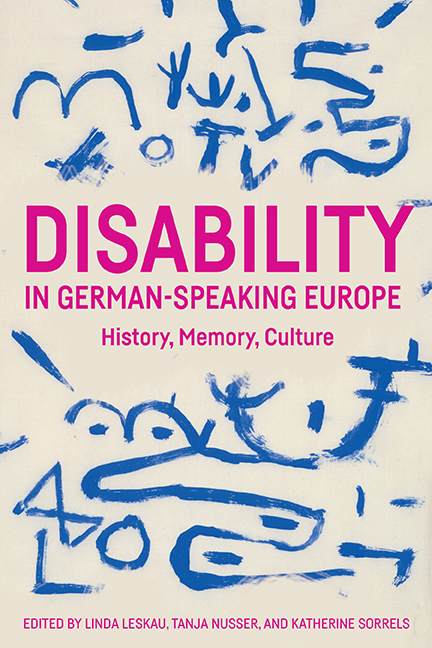5 - From the Disability Murders Archive: Ernst Klee’s Confrontation of the Public with Nazism’s First Genocide
Published online by Cambridge University Press: 16 July 2022
Summary
PUBLISHED IN 1983, Ernst Klee's magnum opus, “Euthanasie” im NS-Staat: Die “Vernichtung lebensunwerten Lebens” (“Euthanasia” in the National Socialist State: The “Annihilation of Life Unworthy of Life”), was a foundational text in the literature of postwar German “working- through” of the Nazi past. It was an early and distinctive exemplar of the genre that would come to be known as “the history of everyday life.” It was also a transformative work in the historical understanding of Nazi perpetrators. In addition, in its time, it altered the German public's understanding of the role of the churches under Nazism and especially of the perpetrators’ would-be adversaries, the directors of church-run charity institutions whose residents were targeted for deportation to killing sites. And albeit with a bit of time lag, but then with considerable force, “Euthanasie” reconfigured the public's grasp of the myriad interrelationships between the murders of people with disabilities and the Holocaust of European Jewry. Although the particulars and the convolutions of the connections between the killings of people deemed cognitively deficient by the Nazis, on the one hand, and the Holocaust of European Jewry, on the other, remain subjects of ongoing scholarly discussion, the mass murders of people with disabilities have come, in substantial part due to Klee's interventions, to be internationally recognized as constituting Nazism's first genocide.
In sum, Klee (1942–2013), played an indispensable role in West and then united Germany in the 1980s and 1990s, in helping to recenter political and cultural attention on the systematic Nazi mass murder program which is now estimated to have claimed the lives of close to 300,000 individuals—above all those with intellectual disabilities and psychiatric conditions—within the Reich and the occupied territories of the Eastern front between 1939 and 1945. Klee's success in getting the German public, after close to forty years of dismissiveness and disinterest, to take the killings of people with disabilities seriously as the crimes that they were came against the background of more than a decade of engaged participant-observer journalism and his own deep practical involvement in disability rights activism in concert with militants from the nationally insurgent radical “cripple movement.”
- Type
- Chapter
- Information
- Disability in German-Speaking EuropeHistory, Memory, Culture, pp. 110 - 129Publisher: Boydell & BrewerPrint publication year: 2022



